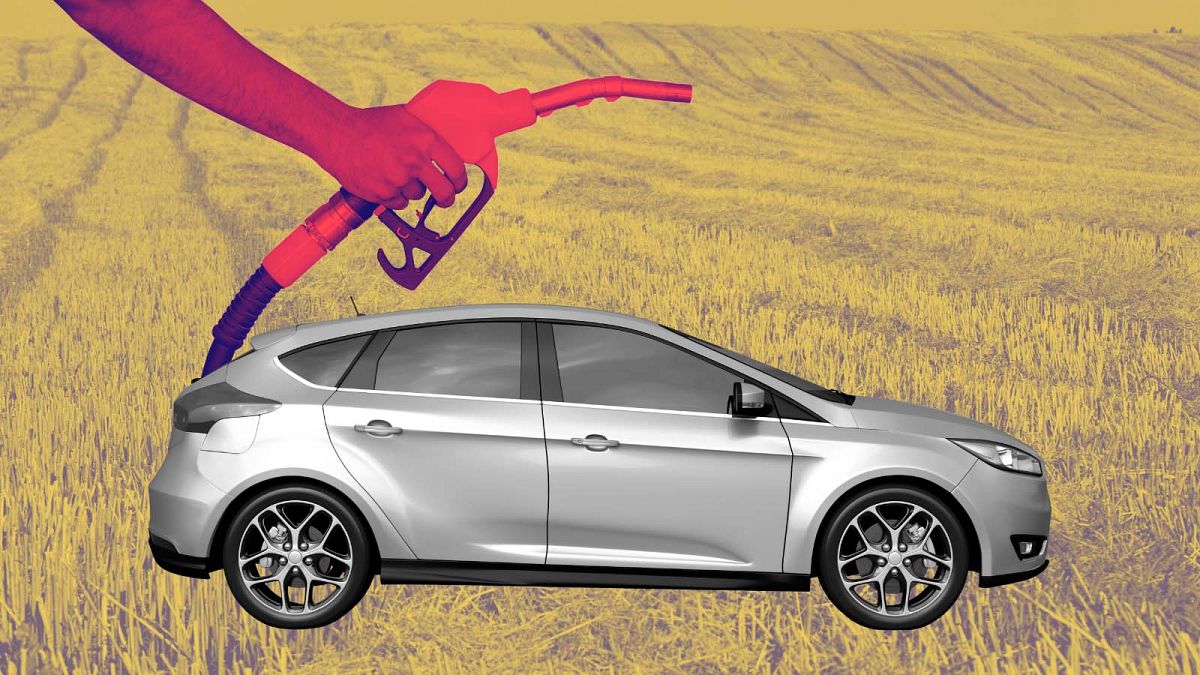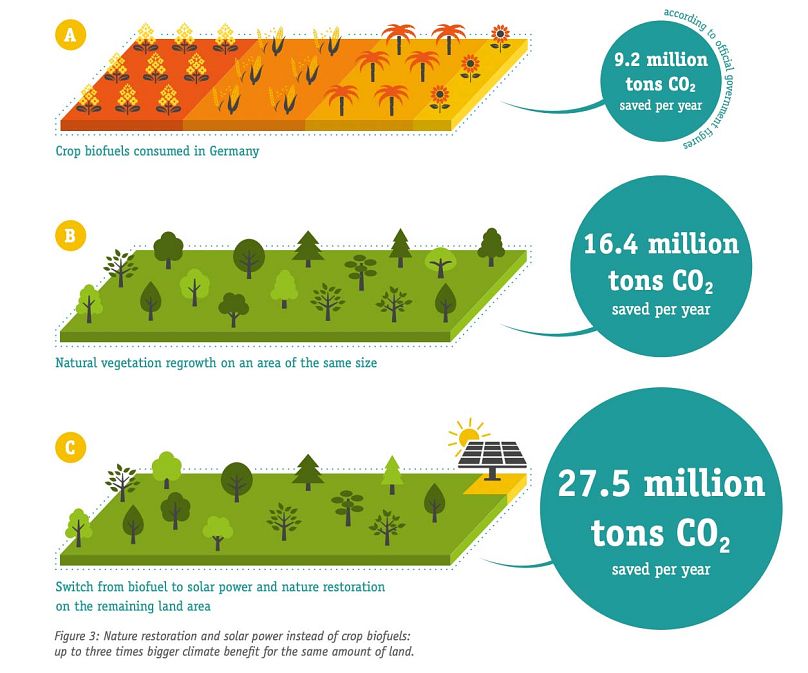‘Fake solution’: Why crop biofuels are not the climate-friendly fossil fuels alternative we took them to be
Humanity is having a hard time kicking its addiction to fossil fuels.
In the past two decades or so, efforts to curb greenhouse gas emissions have often looked more like baby steps and meagre compromises rather than the radical solutions urged by many scientists.
One of these compromises, in Europe, was to continue driving our cars, trucks and motorbikes as we've always done. But instead of running on fossil fuels alone, we brought in a climate-friendly replacement: crop-based biofuels.
Blended with diesel and petrol, crop fuels - made from plants such as rapeseed, cereals, wheat, corn and oil palms - have helped us reduce our dependence on fossil fuels and cut our CO2 emissions. Or so we thought…
Transport accounts for almost a quarter of Europe’s greenhouse gas emissions, with road transport specifically held responsible for 70 per cent of all emissions from the sector.
Unlike other sectors in Europe, emissions for transport have increased in the past 30 years.
In part, researchers argue, this might be happening because crop biofuels aren't quite the climate allies we took them to be.
What's wrong with crop biofuels?
Crop fuels are "fake solutions" to the pressing problem of reducing carbon emissions, concludes a new study commissioned by Environmental Action Germany (DUH).
Analysing the production and consumption of crop fuels in Germany, researchers found that immense areas of land across the globe are "wasted" on the cultivation of these fuels, at a huge environmental cost.
To satisfy Germany's massive appetite for these natural biofuels, more than 1.2 million hectares of land - almost five times the size of Luxembourg - is in use worldwide.
Though the study is limited to Germany, researchers say their findings apply to all of Europe.
Why is using up so much land bad for the environment?
Think of what we could do with the land if we weren't using it to cultivate crop biofuels, say the German researchers.
If those same 1.2 million hectares of land were dedicated to regrowing natural vegetation, that land would be able to store 16.4 million tonnes of CO2 per year, on average.
The number of emissions saved by blending crop biofuels with fossil fuels, on the other hand, was just 9.2 million tonnes of CO2 in 2020, according to official figures.
But there's more. According to the researchers behind the study, the intensive agriculture behind the production of crop biofuels harms ecosystems and biodiversity, causing a dramatic loss of habitats and species.
In Germany, almost 70 per cent of habitats are labelled as having inadequate or poor conservation status, according to the latest Report on the State of Nature by the German Environment Ministry.
Should we stop using crop biofuels?
The short answer is yes.
The EU has recently acknowledged the damage caused by crop biofuel monocultures and introduced regulations to curb the further expansion of agricultural land for this purpose, but the German researchers think this is not enough. What’s needed urgently, they say, it’s phasing out crop biofuels.
The land now used to grow the crops should instead be dedicated to nature restoration, which will see these same areas become natural carbon sinks over time. Fertile farmland, on the other hand, should be used for food production.
What should and could be done immediately, according to researchers, is also to update the EU Renewable Energy Directive (RED) which currently incentivises the use of crop and biofuels as a means of achieving renewable energy targets in the European transport sector.
Most of all, the researchers, like many environmental activists, are asking for real solutions: not compromises, not half-truths. From 2030 at the latest, they say, no new cars with internal combustion engines should be registered in the EU. Combustion engines will never be climate-friendly, no matter what you put inside them.
Walking, cycling and public transport are the way forward
This would mean revolutionising the way we’re used to moving around our cities and countries.
Private vehicles should be gradually abandoned for the sake of walking, cycling and using public transport.
While the vehicles still running on our roads should be powered solely by renewable energy, e.g. solar and electric.
Generating solar electricity for electric vehicles requires 97 per cent less land than crop biofuel for the same mileage.
The solution seems clear: goodbye crop biofuels, hello solar. But old habits are hard to break.




